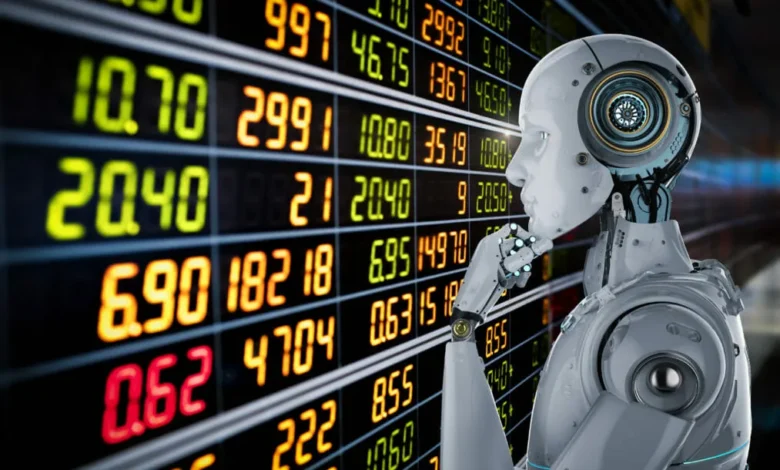Investing in Knowledge Through Science and Finance

In today’s rapidly evolving world, the intersection of science and finance plays a crucial role in shaping our understanding of economic principles, investment strategies, and market dynamics. As the landscape of investment opportunities grows increasingly complex, investing in knowledge becomes paramount for individuals and organizations looking to secure their financial future. This article explores how integrating scientific principles into financial decision-making can lead to better investment outcomes, drive innovation, and contribute to a more sustainable economy.
The Importance of Knowledge in Investing
Investing is not merely about putting money into stocks or mutual funds; it’s a complex process that requires a deep understanding of various factors that can affect the value of an investment. Knowledge empowers investors to make informed decisions, assess risks, and identify opportunities that align with their financial goals.
One of the most significant advantages of investing in knowledge is the ability to navigate the ever-changing financial landscape. Markets are influenced by various factors, including economic indicators, geopolitical events, technological advancements, and consumer behavior. By staying informed about these elements, investors can anticipate market trends and make proactive decisions. For instance, understanding how to invest in mutual funds can provide a diversified portfolio that mitigates risk and enhances potential returns.
The Role of Science in Finance
The integration of scientific methods into finance has transformed how investors approach their strategies. Quantitative analysis, a method that employs statistical and mathematical models, allows investors to evaluate potential investments based on historical data and market behavior. This analytical approach enables investors to identify patterns and correlations that might not be immediately apparent, leading to more effective decision-making.
Moreover, advancements in technology have led to the development of sophisticated trading algorithms and artificial intelligence tools that can analyze vast amounts of data in real time. These tools can help investors spot trends, optimize portfolios, and execute trades at lightning speed, ultimately improving returns. By harnessing the power of science and technology, investors can gain a competitive edge in the marketplace, whether they are looking to invest in mutual funds, stocks, or other assets.
The Impact of Knowledge on Sustainable Investing
In recent years, there has been a growing focus on sustainable investing, which prioritizes environmental, social, and governance (ESG) factors alongside financial returns. Knowledge about sustainability can empower investors to make choices that align with their values while still achieving financial goals.
For instance, understanding the long-term benefits of investing in renewable energy or companies with strong social responsibility can lead to more informed investment decisions. Moreover, as consumers become increasingly conscious of corporate practices, companies that prioritize sustainability may outperform their competitors, making them more attractive investment options. Investors who are knowledgeable about sustainable practices can also find opportunities in the commodity market, where ethical sourcing and environmentally friendly practices are becoming increasingly important.
Behavioral Finance and Decision-Making
Understanding human behavior is another critical aspect of investing. Behavioral finance combines psychology and finance to explain why investors often make irrational decisions. Factors such as emotions, biases, and social influences can lead to poor investment choices, resulting in significant financial losses.
By investing in knowledge about behavioral finance, individuals can learn to recognize and mitigate these biases. For example, understanding the concept of loss aversion—where the pain of losing is more significant than the pleasure of gaining—can help investors maintain a long-term perspective rather than reacting impulsively to market fluctuations. This knowledge can empower investors to make more rational decisions, ultimately improving their investment outcomes in various sectors, including the commodity market.
Continuous Learning and Adaptability
The financial markets are constantly changing, and what worked yesterday may not work today. This reality underscores the importance of continuous learning. Investors must stay updated on market trends, economic developments, and emerging technologies that could impact their investments.
By actively seeking knowledge through books, online courses, seminars, and networking with other investors, individuals can enhance their understanding of financial markets and improve their investment strategies. Adaptability is essential in this regard; investors who can pivot their strategies in response to new information or changing market conditions are more likely to succeed in the long run.
The Future of Investing
As we look to the future, the integration of science and finance will likely continue to evolve. Innovations in fields such as data analytics, machine learning, and blockchain technology are reshaping how investments are made and managed. Investors who embrace these advancements and invest in their knowledge will be better positioned to navigate the complexities of the financial world.
Furthermore, the democratization of information through the internet means that knowledge is more accessible than ever. Investors can leverage online resources, forums, and platforms to enhance their understanding of financial markets and connect with experts. This accessibility fosters a culture of continuous learning and empowers individuals to take control of their financial futures.
Conclusion
Investing in knowledge is a powerful strategy that can lead to better investment outcomes, informed decision-making, and ultimately, financial success. By embracing the principles of science, understanding human behavior, and staying adaptable, investors can navigate the complexities of the financial landscape with confidence. As the world continues to evolve, those who invest in knowledge will be better equipped to seize opportunities, mitigate risks, and contribute to a more sustainable and prosperous future.
In the end, the intersection of science and finance is not just a theoretical concept; it is a practical approach that can significantly impact individuals’ and societies’ economic well-being. By prioritizing knowledge, we can all become smarter, more informed investors and contribute to a brighter financial future.





